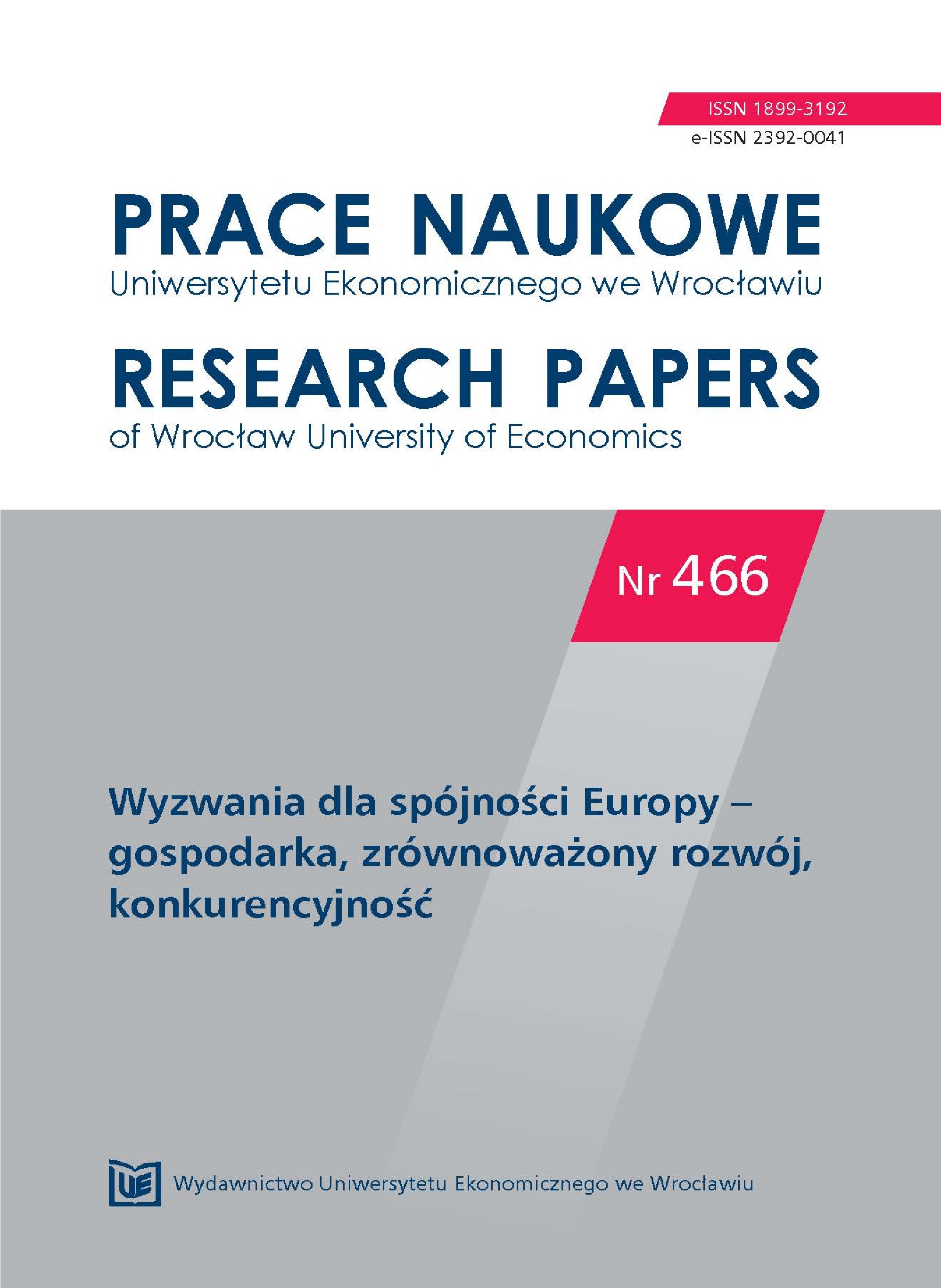Spójność w krajach UE15 po kryzysie fiskalnym
Cohesion
in the EU15 after the fiscal crisis
Author(s): Agnieszka TomczakSubject(s): Economy
Published by: Wydawnictwo Uniwersytetu Ekonomicznego we Wrocławiu
Keywords: fiscal policy; crisis; cohesion policy
Summary/Abstract: Basing on fulfilling nominal criteria of monetary convergence and fiscal discipline, until 2001, 12 countries adopted mutual currency, after which economic growth for every Eurozone country has come. Fiscal and indebtedness crises have revealed that Eurozone countries have not finished their integration process, which is the main obstacle for their development. The European Union countries competitiveness has lowered after crises, along with higher public debt and monetary policy of low efficiency. The purpose of this examination, is to achieve the answer for the question, what is the role of adopting mutual currency in this process, and what other factors were affecting it. The thesis is the statement that one of the main reasons of economic problems in Eurozone countries is the lack of common mechanisms in economic policy and the internal imbalance. They persist because of difference in competitiveness level of national economics, as well as civilization and cultural factors. The macro-economical statistic method was used for the analysis. The main conclusion of this article is the statement that Eurozone countries should accept common fiscal policy frameworks, as well as coordinate national policies of economic development.
Journal: Prace Naukowe Uniwersytetu Ekonomicznego we Wrocławiu
- Issue Year: 2017
- Issue No: 466
- Page Range: 213-222
- Page Count: 10
- Language: Polish

